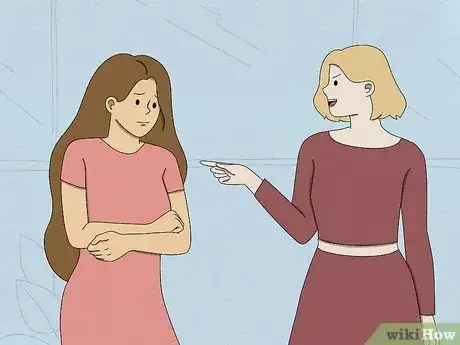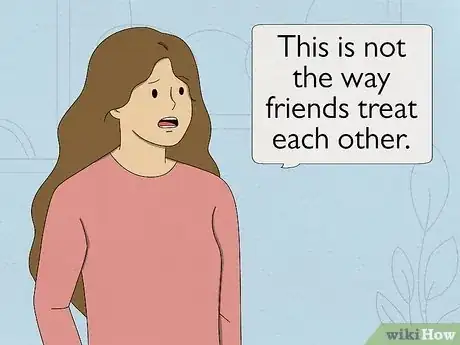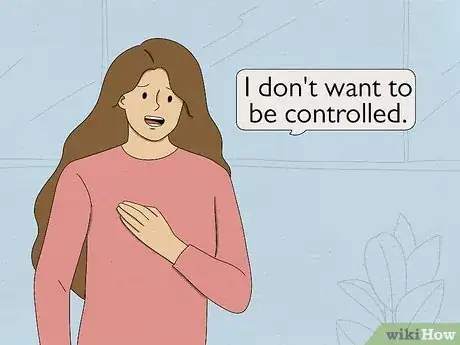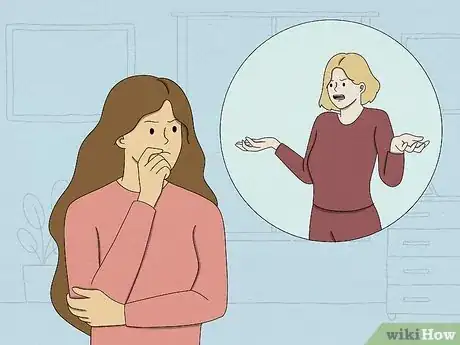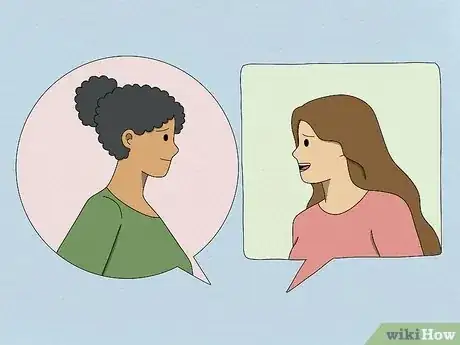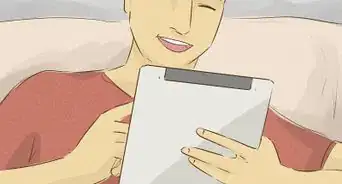X
wikiHow is a “wiki,” similar to Wikipedia, which means that many of our articles are co-written by multiple authors. To create this article, 15 people, some anonymous, worked to edit and improve it over time.
This article has been viewed 67,866 times.
Learn more...
If you have a friendship with a controlling friend, it can be overwhelming—especially if it’s someone you consider to be a best friend and you don’t know what to do. Remember, you can always end a friendship if it has become so toxic that you can’t handle it anymore. There’s absolutely no shame in that. But if you’re looking for ways to mend your friendship, follow these simple and easy steps.
Steps
Part 2
Part 2 of 3:
Talking to your best friend
-
1Tell your best friend what she or he is doing that bothers you. If your friendship is a good one, a talk should be something it can withstand. Tell your friend that there are certain things that he or she does that bother you and cause you to feel taken advantage of. It is important to demonstrate with factual examples, so that your friend can see you've taken note of actual occurrences and you're not just making it up.
-
2Ask your friend to tone it down. Suggest that you'll tell your friend when she or he is falling into the tendency to be over-controlling, as a cue to stop it straight away. If your friend values you and the friendship, this should be a realistic thing to ask of your friend.
- Tell your friend that this is not the way friends treat each other and describe to her or him what you need to change.
- Show your friend that you are upset. In the right context, don't be afraid to raise your voice a little bit.
- If you do want to continue being her or his friend, tell your friend gently enough to help her or him understand and not be too mad or feel threatened.
-
3After a discussion, if things worked out favorably, be gentle in pointing out the bad habit. When she or he begins trying to control you, just discreetly say, as if you didn't want to embarrass her or him, to stop telling you what to do.
- Show or explain to your friend what she or he doing and tell her or him how to fix it. For example, when your friend tells you to come with her or him to the park next Tuesday, explain that you don't want to be controlled. To fix it, expect your friend to ask you whether or not you want to go somewhere or do something rather than simply telling you.
Advertisement
Part 3
Part 3 of 3:
Breaking free
-
1Consider what to do if your friend refuses to acknowledge his or her controlling behavior. In this case, you have the option of simply pulling away more but staying friends, right through to walking away from the friendship. See if you can try the softer options first, before ending a best friendship.
-
2Practice your independence. Become better at doing things on your own and taking responsibility to show your friend that you've changed and have taken control of your own life. Don't be available all of the time; go out with other friends or do other things without your friend
- Stop your friend from doing it by doing it yourself. If your friend feels a need to step in for you to fix things, start fixing those things for yourself before your friend even notices.
-
3Refuse to react. For example, when your friend begins to boss you around, don't do what she or he says. Just ignore what your friend tells you and she or he will get the indication to stop doing it.
-
4Tell someone. It is not fair that you must be the puppet of a friend and if you find it too hard to stop the behavior alone, consider telling someone who can help. Tell someone close to you what's been happening, and ask for their advice on how to handle it.
-
5If your friend doesn't listen, and refuses to stop the controlling behavior, consider ending the friendship. Or, at least stop being this person's best friend. It's hard to be in a situation like that, but go with your gut feeling and realize that you have the power to stand up for yourself.
- Avoid communicating. If you have a best friend who is a friend of the controller, or you and the controller are friends for long, then take a break. Go to relatives' house for holiday stays; forget the controller's existence by distracting yourself. If she frequently calls/texts you, switch off your phone or change your SIM.
Advertisement
Warnings
- Beware: your best friend might start rumors about you.⧼thumbs_response⧽
- If you have another best friend (who is not a controller) who is friends with the controller, chances are there that the controlling friend might mesmerize your BFF onto cutting your friendship.⧼thumbs_response⧽
Advertisement
About This Article
Advertisement
